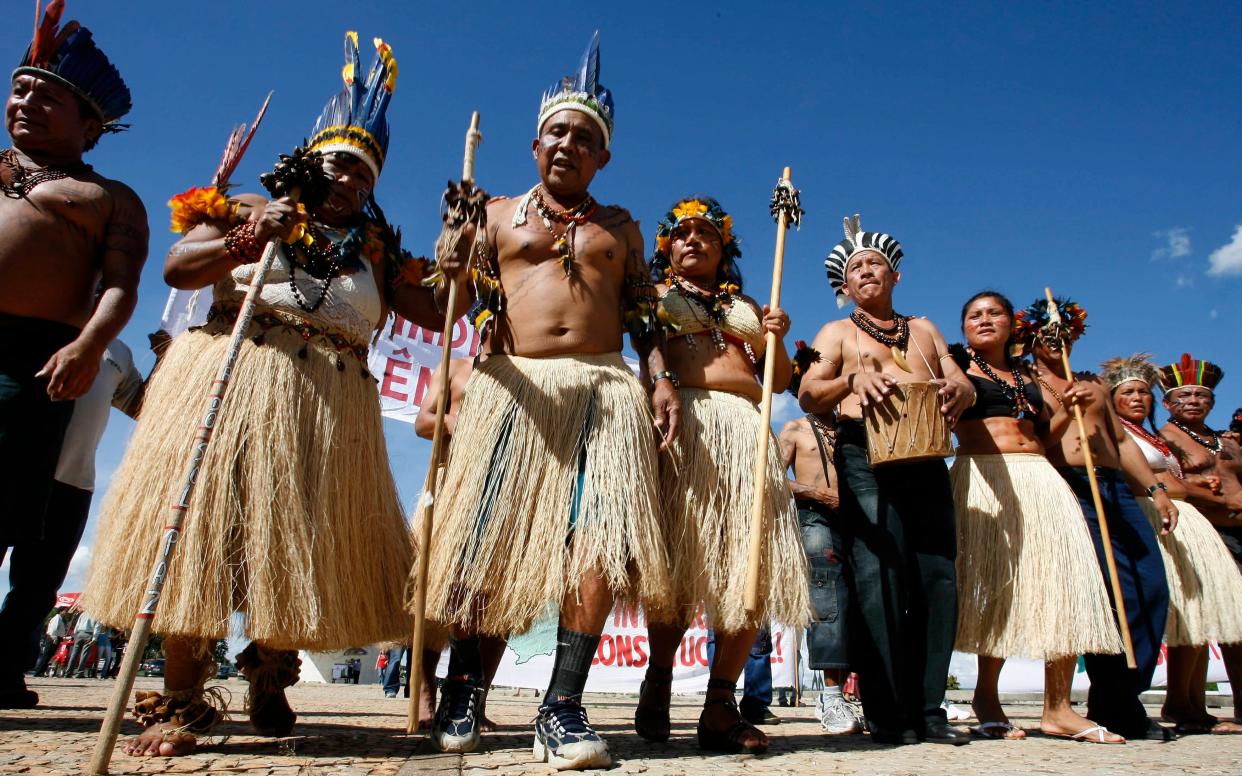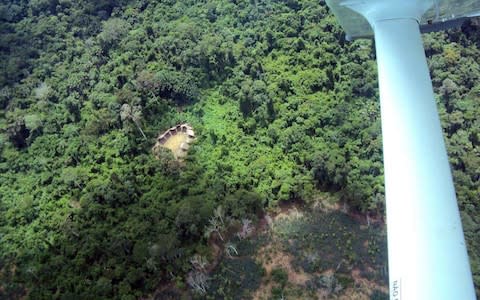Remote Amazon tribe 'at risk of being decimated by measles outbreak'

An isolated Amazon tribe on the Venezuela-Brazil border has been hit by a measles epidemic that could kill hundreds of indigenous people if emergency action is not taken, NGOs have warned.
The Yanomami people, who live in communities on both sides of the border, have reported up to 100 cases of measles since the first reports of illness began to emerge in March, according to media in Brazil. But with most living far from medical facilities, assessment and treatment is difficult.
Across northern Brazil as a whole, at least 500 people have been confirmed to be infected by measles, while 1,500 suspected cases are also being investigated, according to authorities. Survival International, an NGO working to protect indigenous groups, said the outbreak could prove devastating to the Yanomami, who are not protected from the disease.
There had very likely already been deaths deep in the forest and many more could follow, the group said.
Stephen Corry, the group’s director, said: “When tribal people experience common diseases like measles or flu, which they’ve never known before, many of them die and whole populations can be wiped out. These tribes are the most vulnerable peoples on the planet. Urgent medical care is the only thing standing between these communities and utter devastation.”

In 2016, the Americas was declared to be free of measles by the World Health Organisation, but visitors can still import the disease.
Authorities in Brazil have blamed the outbreak on refugees fleeing from Venezuela, which according to the Pan-American Health Organisation’s March report leads Latin America in measles cases. But health experts say that a drop in vaccination cover is also a factor.
Survival International noted that illegal gold miners had also invaded indigenous areas on both sides of the border, and that they were a “likely source” of the disease. However the Brazilian government had taken little action to remove them despite “repeated warnings”, the group said.
The Yanomami - who number around 35,000 on both sides of the border - have suffered previous outbreaks of disease after coming into contact with gold miners, and in the 1960s a measles epidemic claimed the lives of 9 percent of the tribespeople.
Survival called on the Venezuelan authorities to send urgent medical help to communities on its side of the border. However Venezuela is suffering a deep humanitarian crisis that has gutted its health service and left many basic medications unobtainable.
Wataniba, a Venezuela-based NGO, noted that amid the crisis, illegal gold mining had grown substantially. Insecurity in the region had left regional health agencies unable to enter, indigenous people had informed them, the group said.
The outbreak constituted a “grave threat” to the Yanomami, it added.
Protect yourself and your family by learning more about Global Health Security.

